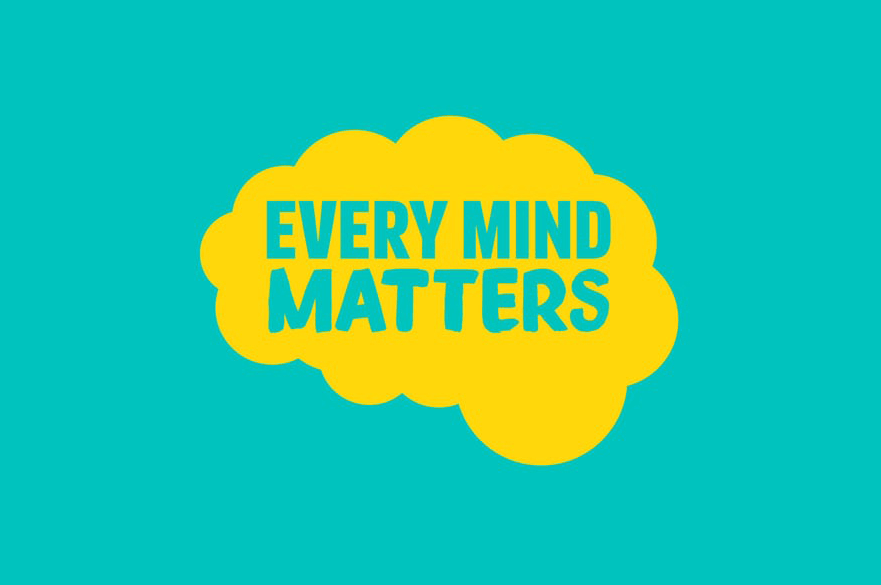Most families in the East Midlands have experienced upheaval in their daily lives during the pandemic. With children and young people now back at school or college, PHE’s new campaign provides NHS-endorsed tips and advice to help parents and carers to look after their children and young people’s (CYP) mental wellbeing.
The advice comes as CYP report higher levels of stress and anxiety than the general adult population, with COVID-19 increasing a number of risk factors for poor mental health in this group. The impact of school closures in the East Midlands, limited social contact with friends and family and no access to leisure activities were identified as key reasons.
A household survey reported that the three feelings CYP said they most experienced during lockdown were boredom (51%), worry (28%) and feeling trapped (26%), with nearly 1 in 5 saying they were unhappy during this period.
New PHE data from the East Midlands reveals that two thirds of parents surveyed say their children’s behaviour has changed since the start of the pandemic (68%), and when asked their top three worries around coronavirus, over half (53%) said the mental wellbeing of their children topped the list of their biggest worries. As we adapt to a new normal many parents and carers anticipate their children will experience new stresses. This includes facing the challenges of catching up with missed education, starting new schools or colleges and building relationships with friends again.
A significant number of parents surveyed in the East Midlands say that not knowing what action they can take to support their children’s mental wellbeing has prevented them supporting (19%) and more than a third (34%) want more advice on how to support their mental wellbeing when returning to school.
The advice available on the Every Mind Matters website has been developed in partnership with leading children and young people’s mental health charities, including Young Minds, The Mix, The Place 2 Be and The Anna Freud Centre. It is designed to help parents and carers spot the signs that children may be struggling with their mental health, and empowers them with tips and advice to support their children’s mental wellbeing. In addition to the advice for parents and carers the site also provides tools to help young people build resilience and equips them to look after their mental wellbeing.
To engage parents and carers a powerful short film has been created featuring a range of celebrity parents including Davina McCall, Marvin Humes, Sean Fletcher, Katie Piper and Edith Bowman, reading extracts from best-selling author Charlie Mackesy’s well-known book, ‘The Boy, The Mole, The Fox and The Horse’. The emotive extracts all touch upon mental health and aim to encourage parents to visit the Every Mind Matters website.
NHS’s Top 5 Tips for supporting children and young people’s mental wellbeing as they go back out into the world (please view all tips on the Every Mind Matters website)
- Be there to listen: Ask the children and young people you look after how they are doing regularly so they get used to speaking about their feelings
- Stay involved in their life: Try to know something about all parts of your child’s or young person’s life
- Support positive routines: Be a positive role model and support positive behaviours including regular bedtime routines, healthy eating and getting exercise
- Encourage their interests: Children and young people are often drawn to particular interests, so support them in exploring them
- Take what they say seriously: help the children and young people you look after feel valued in what they say
The website also encourages parents to complete a personal ‘Mind Plan’, a quick and free interactive tool offering adults tailored mental wellbeing advice. More than 2.4 million ‘Mind Plans’ have been completed since launch in October.
Jane Roberts, Health and Wellbeing Programme Manager at Public Health England East Midlands said:
Since the launch of Every Mind Matters we have come a long way in changing the conversation around our own and our loved one’s mental health to one that is open, honest and caring. But the coronavirus pandemic has left many of us feeling stressed, anxious, low or caused us to have trouble sleeping. This is quite normal but when these become overwhelming or frequent they can manifest into a more serious problem. Every Mind Matters provides online resources to help parents and carers protect and improve their own mental health, and that of their children, at the earliest opportunity possible.
Dr Yvonne Doyle, Medical Director and Director of Health Protection at Public Health England said:
Parents’ and carers’ relationships with their children are special and we want to give them the support they need. Being there to listen and encouraging them to explain how they feel can make a real difference to how children and young people cope with life’s challenges. It can also help them develop effective skills to cope with their emotions.
Minister for Mental Health, Nadine Dorries, said:
The effects of the pandemic on children and young people’s mental health have been challenging and it is vital we continue to do all we can to protect them and prevent long-term effects. Young people should feel encouraged to speak up, look out for each other, and ask for help. This campaign and these resources are a great way to access support and help parents to understand steps they can take to care even more for their children’s mental health and wellbeing.
The new Better Health – Every Mind Matters campaign will be supported through social media, radio and press activity, helping to reach audiences including parents and carers of children and young people (aged 5-18) and young people (aged 13-18).
Search Every Mind Matters for expert tips and advice to support children and young people with their mental wellbeing, or for more information, visit the website.
